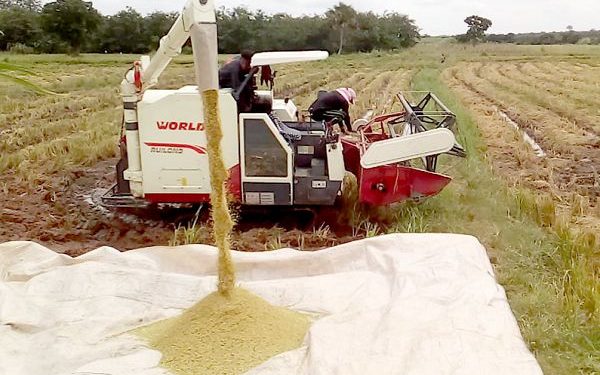Rice farmers across Ghana are lamenting the lack of market access for their produce despite asserting that they can meet the nation’s annual rice dem
Rice farmers across Ghana are lamenting the lack of market access for their produce despite asserting that they can meet the nation’s annual rice demand.
They say the continued preference for imported rice has left thousands of tonnes of locally produced paddy rice unsold, with much of it at risk of spoilage. Many farmers now face difficulties repaying loans taken to finance their operations.
On Friday, October 31, rice farmer Mr. Duncan Amoah described the situation as “dire,” noting that many farmers are struggling to recover their investments.
“The 100,000 [bags] is just partial because we are now entering the major harvesting season,” he said. “The money you put in, you can’t recoup it because of labor and other costs. Unfortunately, public programmes are still using foreign rice, which is crippling our market for local rice.”
Mr. Amoah added that although the quality of locally milled rice has improved—free from stones and impurities—demand remains low.
“We are producing enough to meet national consumption, but markets are our biggest problem,” he lamented.
He revealed that he harvested about 940 bags of 80kg rice in 2024 but continues to struggle to sell them, citing unfair pricing by middlemen.
“When these market women buy your rice, you have a very big problem. You can’t get your money back, and most of the prices are very cheap,” he said.
Responding to the farmers’ concerns, Mr. Charles Nornoo, Agricultural Transformation Team Lead at the Office of the President, acknowledged the challenges and said government has begun taking steps to address them.
“The ministry has provided funds to the National Food Buffer Stock Company to mop up what is in the system and is advancing more money to absorb the excess produce,” he noted.
Mr. Nornoo recommended that government work with more licensed aggregators to purchase surplus rice and ensure fair pricing for farmers.
“We should also increase institutional procurement—school feeding programmes, prisons, and security agencies—to buy from our farmers. We should eat what we grow,” he emphasized.
The farmers are urging government to intensify local market support and reduce reliance on imported rice to sustain livelihoods and strengthen Ghana’s food security.
